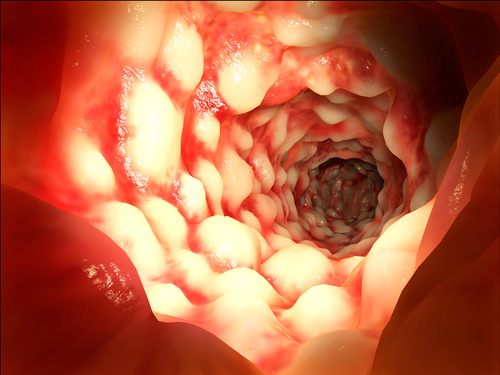 There is a delicate balance in the human gastrointestinal tract between the potentially harmful bacteria consumed through daily nutrition and the “normal flora or “good bacteria“ that play key roles in maintaining digestive health. What’s impressive is the human gut is home to roughly 100 trillion microbiota. That’s 10 times more than all the body’s cells combined.
There is a delicate balance in the human gastrointestinal tract between the potentially harmful bacteria consumed through daily nutrition and the “normal flora or “good bacteria“ that play key roles in maintaining digestive health. What’s impressive is the human gut is home to roughly 100 trillion microbiota. That’s 10 times more than all the body’s cells combined.
Some scientists even consider these microorganisms as a kind of “forgotten organ” because of all the good they do for their host body. However, there are situations, such as those focused on in a recent study from Yale University, where certain gut bacteria trigger and aggravate inflammatory bowel diseases (IBD). The researchers believe these bacteria behave the way they do according to the body’s immune responses.
According to Richard Flavell, the Sterling Professor of Immunobiology at the Yale School of Medicine, some harmful pathogens still manage to slip through the body’s defenses and cause damage wherever they settle in the gastrointestinal tract. Their research isolated strains of bacteria that had an unusually high number of Immunoglobulin A (IgA) embedded in the surface. Flavell explained that normally, the body produces these IgA molecules to keep certain bacteria in check, allowing them to form a film around neutralized bacteria.
The researchers sampled both “harmless” and pathogenic gut bacteria from several patients and instilled them in mice. Those that received the good bacteria did not have any gastrointestinal upset, while the mice that received the latter exhibited IBD symptoms. Flavell and his team of investigators concluded that there indeed exists a relationship between more concentrated surface IgA and the body’s innate immune responses within the gut.
While the study’s findings may serve as a basis for prescribing a course of antibiotics to IBD patients, and for the future development of vaccinations and enhanced probiotics, Flavell cautions the biomedical community to investigate the matter further, as it will take time to accurately pinpoint all harmful gut bacteria associated with IBD.
For those interested in learning more about Flavell and his team’s study, it is currently available in the August 28 issue of Cell. entitled, “Immunoglobulin A Coating Identifies Colitogenic Bacteria in Inflammatory Bowel Disease.“
Many long thought-to-be unlikely relationships have been discovered through today’s innovative research efforts, such as those discovered by a dynamic group of experts from the University of California, San Diego. They are looking at how cell migration during an immune response may be the culprit behind certain chronic inflammatory diseases (i.e. arthritis, IBS, Type 1 diabetes and multiple sclerosis).

